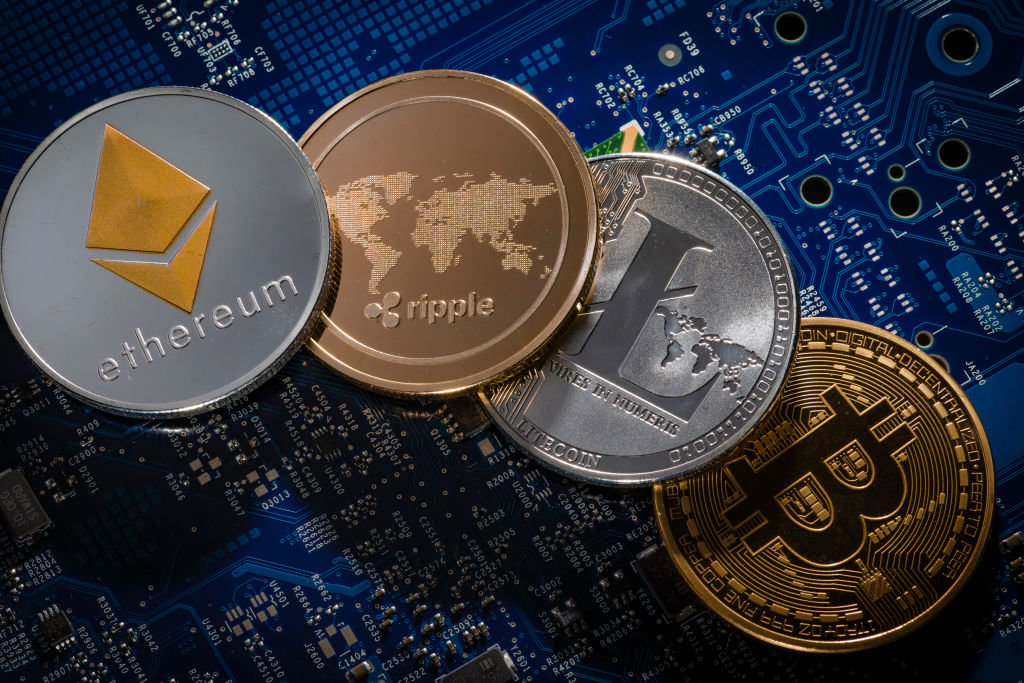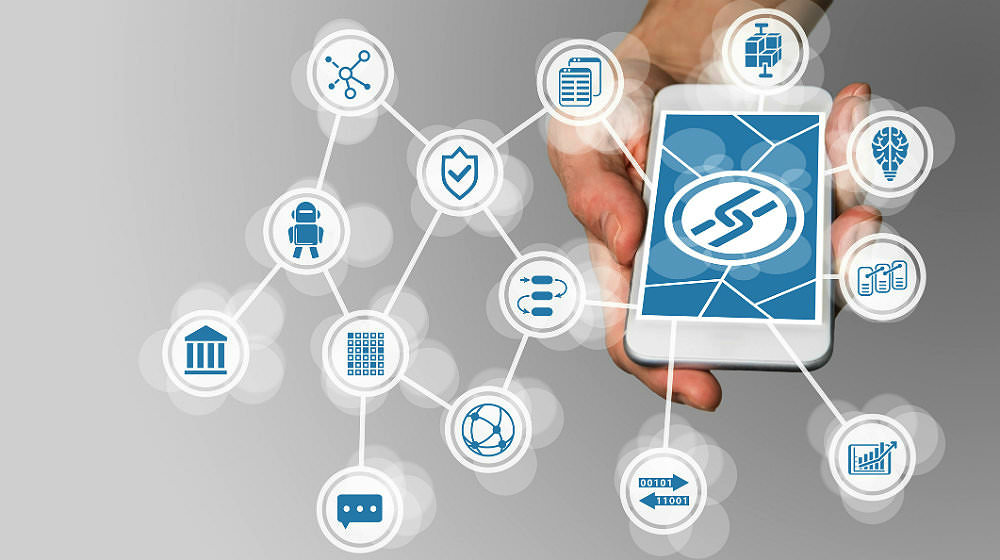Since the booming of Bitcoin and “Alt-coins” that followed up, there is an increasing hype regarding the technology behind cryptocurrencies, the blockchain. You may find plenty of articles on the web on what is exactly the blockchain and what are the benefits of using it. In this article we want to bring your attention to a simple question:

First things first. Until now probably you would have survived without using blockchain. Thus someone could say abstractly that you don’t need it in your day to day operations. A few years ago cloud computing revolutionized company services. Business models moved from standard prices to “pay-as-you-go” and managed to increase the number of customers that could pay a service for a limited cost.
Businesses reduced their costs in many cases by transferring services & processes on the cloud. While at the same time users could have access on their data on the go, from mobile to tablet and from tablet to PCs. No doubt, cloud computing changed the business models of companies. Was it easy? Certainly not. Creating a business model for a SaaS company (Software – as –a – Service) is still nowadays a tough cookie.
If you are a CEO, most probably the tech geek of your company has knocked your door asking you to incorporate the blockchain technology in your series of products. We have a series of reasons that you should take into consideration before you take your decisions.
- Pioneering doesn’t always make new incomes. We have seen many companies to
 bet big amounts on R&D without the right ROI. The example of Nokia is very recent. No one could think that Nokia would be in danger few years ago. A series of bad decisions on following Windows Phone platform made the company sink their sales. Cell phone companies that selected the safe way, by following Samsung’s successful example in Android, reaped the benefits and their share in the market.
bet big amounts on R&D without the right ROI. The example of Nokia is very recent. No one could think that Nokia would be in danger few years ago. A series of bad decisions on following Windows Phone platform made the company sink their sales. Cell phone companies that selected the safe way, by following Samsung’s successful example in Android, reaped the benefits and their share in the market. - Many companies are thinking to use blockchain without the concept of a cryptocurrency. Blockchain however was a technology that has cryptocurrency at its heart. Since with the blockchain you store “something” on the chain and you cannot delete it, costs can only go up. Caution must be exercised. You cannot say that you will implement a pay-as-you-go model for your customers. For the same service, one day the costs will be X, the next day (since something would
 have been stored on the chain) will cost more than X. Maybe you follow a complex model that reduces this cost by 90-95%, however, it stills prolongs a failure to your model.
have been stored on the chain) will cost more than X. Maybe you follow a complex model that reduces this cost by 90-95%, however, it stills prolongs a failure to your model.
You may start with a great service in the first days, months or years that your customers pay a lot, but what will happen if you customers have got used to your service and you come to a point that your cost of services grows exponentially (as the chain does). In the cryptocurrency model, you need miners to add computational power to the system to relieve it from the hungry-for power-chain. Thus, if you consider blockchain, you should consider a cryptocurrency to support it. - On the other hand, cryptocurrencies are not allowed in all nations. Maybe you have already started developing an integrated solution. Have you considered the risk that maybe your nation will not allow cryptocurrencies or you may have limitations in legislations that will make your business not affordable? In the global market of internet business and hard competition, can you afford to sell a technology only to some nations?
- A decentralized-distributed service is by far a safe, secure and immutable service in the world of blockchain. Does your product really needs to be decentralized, which means that there won’t be a centralized authority to handle it. In such case if you don’t have the control why would you pay to build something that you don’t own? If your product it’s partially centralized, then it’s not a true blockchain product, which means that it is far from its originated philosophy.
- If you associate your blockchain integrated solution with cryptocurrencies, it means that you target mainly in B2C. Not all B2B customers can legally access token market from the country of their origin.
- The gap in legislation may turn to a big disadvantage for your product. You don’t want you and your customers to be considered using a system to avoid paying taxes, which means that you facilitate a crime.
- In an untraceable decentralized system that no one takes the responsibility. Even if it’s the customer that made the mistake, it will be hard for your lawyers to accuse someone else in order to protect you.
- If you plan to use a cryptocurrency along with your blockchain and have
 customers-miners, please be reminded that maybe it is contrary to your CSR (Social-Corporate-Responsibility) policy for CO2 emissions reduction. In large cryptocurrency blockchain, a single transaction may use the equivalent energy of 1.5 average households in a single day.
customers-miners, please be reminded that maybe it is contrary to your CSR (Social-Corporate-Responsibility) policy for CO2 emissions reduction. In large cryptocurrency blockchain, a single transaction may use the equivalent energy of 1.5 average households in a single day. - If you remember, Bitcoin at the beginning was really fast. However as Bitcoin
 usage was booming, in order to verify a transaction it could take from 15 to 40 minutes. In the era of 5G and 1 Gigabit per second, would you say to your customer “Please wait for your transaction 5 or 10 minutes?” As Kaspersky said, “Aside from that, Bitcoin-blockchain transactions are recorded only once every 10 minutes. To increase payments security, it is standard practice to wait 50 minutes more after each new record appears because the records regularly roll back. Now imagine trying to buy a snack using bitcoins. It’s no big deal to stand in line for an hour at the store, right?”
usage was booming, in order to verify a transaction it could take from 15 to 40 minutes. In the era of 5G and 1 Gigabit per second, would you say to your customer “Please wait for your transaction 5 or 10 minutes?” As Kaspersky said, “Aside from that, Bitcoin-blockchain transactions are recorded only once every 10 minutes. To increase payments security, it is standard practice to wait 50 minutes more after each new record appears because the records regularly roll back. Now imagine trying to buy a snack using bitcoins. It’s no big deal to stand in line for an hour at the store, right?” - When you are in the beginning of introducing a blockchain solution with a cryptocurrency, most of you probably would consider that your system is unbreakable right? Kaspersky again say: “The risk of a 51% attack applies to blockchain solutions as well. If someone controls more than half of the computing power currently being used for mining, then that person can surreptitiously write an alternative financial history. That version then becomes reality. Thus, it becomes possible to spend the same money more than once. Traditional payment systems are immune to such an attack”. Would you take the responsibility to initiate something by betting on the possibilities?
- As said in a recent article in Venture Beat and we totally agree “Blockchain is a customer support nightmare. For most consumers, losing a password to an online
 service is a mild inconvenience they’ve grown accustomed to, since typically, it’s quickly fixed by requesting an email reset, say, or talking with customer service. Blockchain wallets and their passwords, by contrast, are tied to a file on a user’s hard disk and are absolutely critical to users trying to access the blockchain. By their very nature they have no recovery mechanism. “You lose your password, you lose everything” is an awful user experience for mainstream consumers and a nightmare for companies attempting to build their service on a blockchain. If you use a hosted service, the risk of theft or sudden loss of assets is very real, with central targets and limited traceability”. You may not have the best product in the world but what may differ you from competition is your friendliness and dedication for supreme customer support. With Blockchain you simply cannot do it.
service is a mild inconvenience they’ve grown accustomed to, since typically, it’s quickly fixed by requesting an email reset, say, or talking with customer service. Blockchain wallets and their passwords, by contrast, are tied to a file on a user’s hard disk and are absolutely critical to users trying to access the blockchain. By their very nature they have no recovery mechanism. “You lose your password, you lose everything” is an awful user experience for mainstream consumers and a nightmare for companies attempting to build their service on a blockchain. If you use a hosted service, the risk of theft or sudden loss of assets is very real, with central targets and limited traceability”. You may not have the best product in the world but what may differ you from competition is your friendliness and dedication for supreme customer support. With Blockchain you simply cannot do it. - According to our perspective the above reason also limits the age of the target groups of your customers. The younger generation is better trained in storing passwords and not losing them. However for our older friends, family, device failures, “bad memory” and day-to-day running, are strong reasons why you may forget a password. If your product is not just for youth, then blockchain maybe is not suited for your company.
If you have read all the above reasons, you may have been discouraged. We don’t suggest that blockchain is not a game-changing technology. We just believe that blockchain needs to be more matured, before its adoption in a wide range of business.
We trust that you will be now able to respond to our question regarding the suitability of the blockchain in your business. In a flow-changing environment Digital Transformation of your company is critical for its survival as you may have read in our previous articles here, here & here.
 In DvK we can combine gray hair B.o.D. experience with the right tech talent for tailor made decisions for your company. As we like to say in DvK “Let you, be the one that governs the tech and not the tech that governs you”.
In DvK we can combine gray hair B.o.D. experience with the right tech talent for tailor made decisions for your company. As we like to say in DvK “Let you, be the one that governs the tech and not the tech that governs you”.

